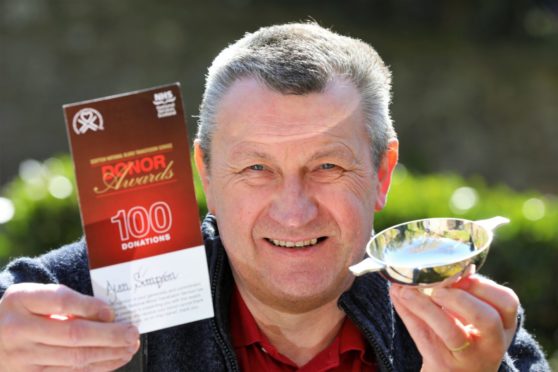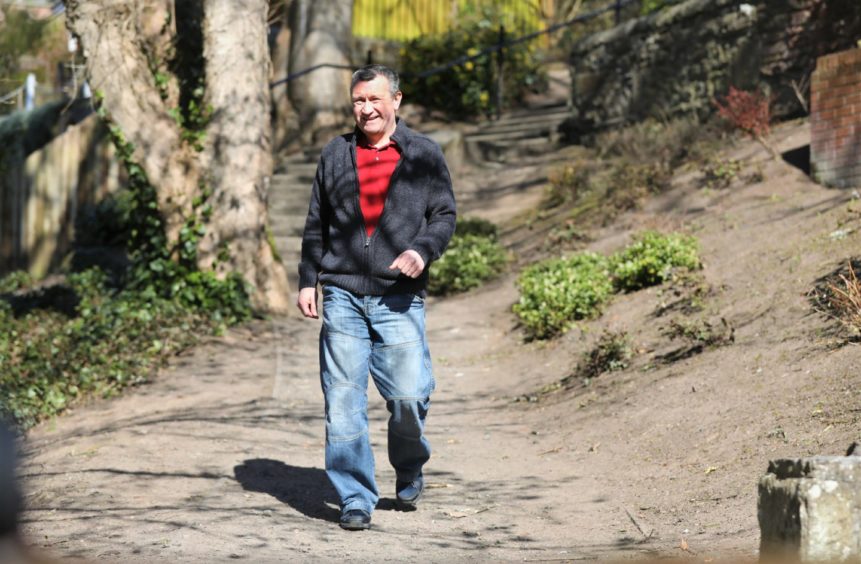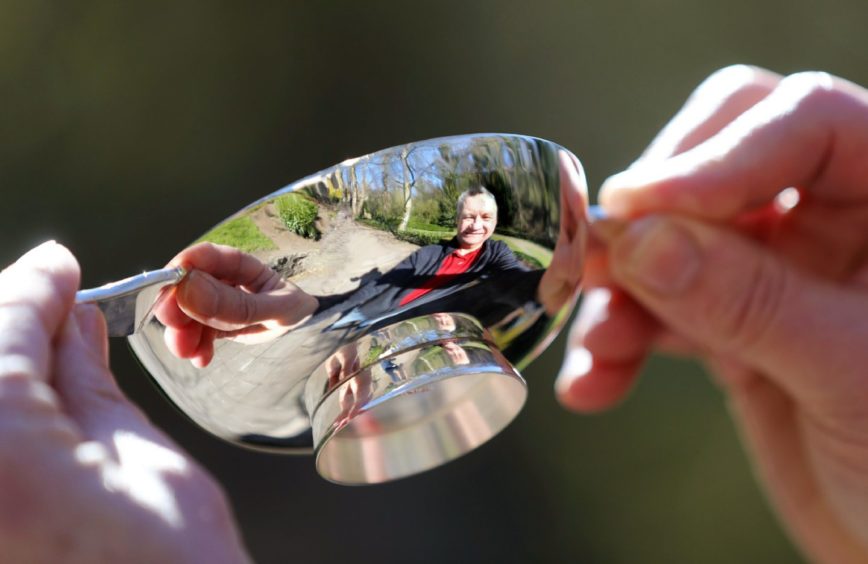Blue flashing lights.
They were the last thing Alan Simpson saw on Christmas Eve.
A day that should have been memorable for different reasons as his middle daughter’s birthday and a chance for family to be together during lockdown’s brief festive relaxation.
And, with Alan having recently achieved the remarkable milestone of 100 blood donations, the Brechin family had plenty to celebrate.
Instead, the 57-year-old was being resuscitated in an A90 layby after making his own lifesaving 999 call.
Fate came calling in the form of an excruciating heart attack – pains Alan had spent previous days dismissing as simply a bad dose of indigestion.
As he continues on the mend from the surgery which saw three stents inserted into his heart, the Ninewells Hospital manager has urged others to use his brush with death as a warning not to ignore signs of trouble.
Chest pains
Days previously, the early indications something was up had left Alan struggling on the short walk up Brechin High Street.
“By the time I was at the top of the hill I was clutching my chest,” he said.
“It happened again, but I really just put it down to indigestion,” said the sterile services quality and technical manager.
“The signs were there.”
Alan set off for Ninewells on December 24 but felt so unwell he made the decision to turn around and head back up the dual carriageway.
Coffee shop drama
Wife Carol, 52, was in her Cup Above coffee shop in Montrose on the last day before lockdown rules would be re-introduced, entirely unaware of the unfolding drama.
She said: “He got to the Tealing junction, pulled in and dialled 999.
“He stayed on the phone to the ambulance but all he could remember was the blue lights coming towards him.
“It was one of Alan’s colleagues who phoned me to tell me what happened.
“I collapsed in the shop and banged my head and my staff were so worried they were going to call an ambulance for me.
“But within a very short time Alan was able to phone me himself and tell me he was fixed.
“He got the very best treatment and they put in three stents.
“With the coronavirus restrictions we couldn’t go in and visit him, which made it 100 times worse.”
Carol added: “It has just been an awful time for the family but he’s doing well now, working from home and his department have been absolutely great.
“Alan was an athletics coach, he’s always on the go and will do anything for anybody.
“We have three daughters and four grandchildren and I am just so proud of him, and so glad he is still here.”
Defibrillator
The couple have been married for 32 years and Carol said collecting the couple’s Ford Kuga drove home to her how close the family had come to tragedy.
“They cut his jacket and shirt to defibrillate him and the side compartment of the car had been pulled out to try and get him out as quickly as possible and save him,” said Carol.
“It is so scary thinking about it.”
Alan’s recovery has been boosted by the recent arrival of the engraved quaich and certificate marking his 100th blood donation.
“It was always a goal I had aimed for and I gave my 100th donation at the Marryat Hall just before this happened,” he said.
“Because of what’s happened I can’t do it just now, but if there is any way I can get back to donating, I definitely will.”
He said: “I just hope people will make themselves aware of the symptoms of a heart attack.
“I just didn’t believe that was what was happening to me, but the signs were there.
“Looking back it’s easy to see now.”
The warning signs
Heart attack symptoms:
Chest pain
Pain in other parts of the body – it can feel as if pain is travelling from chest to arms, jaw, neck, back and abdomen
Feeling lightheaded or dizzy
Sweating
Shortness of breath
Feeling or being sick
Overwhelming sense of anxiety
Coughing or wheezing.
Symptoms can differ between men and women.
NHS advice is to call 999 immediately and ask for an ambulance if you suspect a heart attack.


